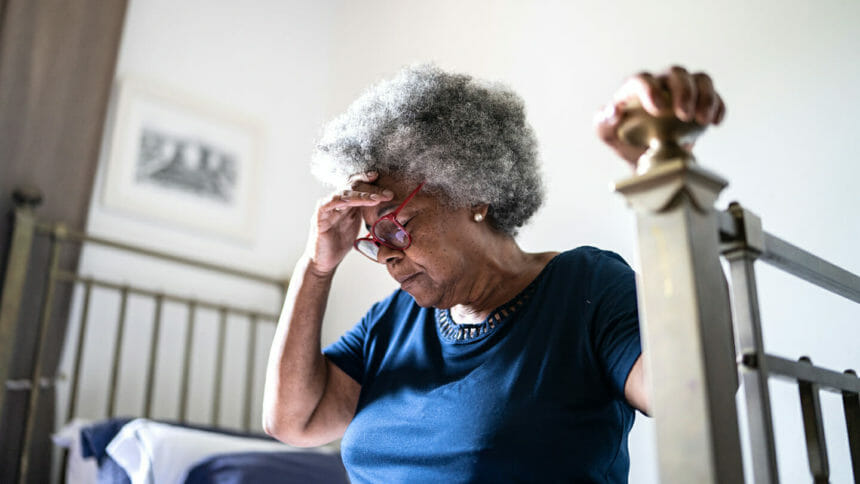
Fear of COVID-19 prompted many seniors to cancel medically necessary home health during the pandemic, according to a new study by the University of Michigan.
Researchers said the lack of home-based care worsened medical conditions for a number of patients. At the same time, care providers reported feeling ill-prepared to advise patients on deciding whether or not to continue care because they said they lacked sufficient information and training.
“One home health care agency representative said their agency’s patient load decreased by 38% as a result of patients canceling services,” study first author Jennifer Inloes, from the U-M School of Nursing, said in a statement. “It really highlighted the level of fear among patients receiving home-based health care services at the early part of the pandemic.”
COVID-19 has clearly been more dangerous to older adults. Data from the Centers for Disease Control and Prevention found adults over the age of 65 have accounted for roughly 90% of COVID-19 deaths in recent months.
While disease management continues to shift toward the home, there is little research on how public health emergencies affect continuity of home healthcare.To that end, researchers interviewed nearly 30 Medicare-certified home health providers across eight states to better understand what motivated older adults to decline home-based services during the pandemic.
The findings emphasized the role emotion plays in making medical decisions and challenges the assumptions that patients will make rational decisions when given enough accurate and educational information. Inloes said her research highlights the importance of carefully weighing the well known benefits of home healthcare with the negative consequences of canceling services.
“Home-based health care providers are trained in infection control precautions, so the risk of becoming infected with COVID-19 from a provider coming into the home is fairly small,” Inloes said. “However, a patient experiencing a preventable refusal-related complication that requires emergency department treatment has now inadvertently increased their risk of COVID-19 exposure due to the larger number of providers, patients and family members in the emergency department versus the home setting.”
The study could not determine if those older adults who avoided infection by isolating themselves were harmed by negative health outcomes because they refused care.
This article originally appeared on McKnights Home Care





